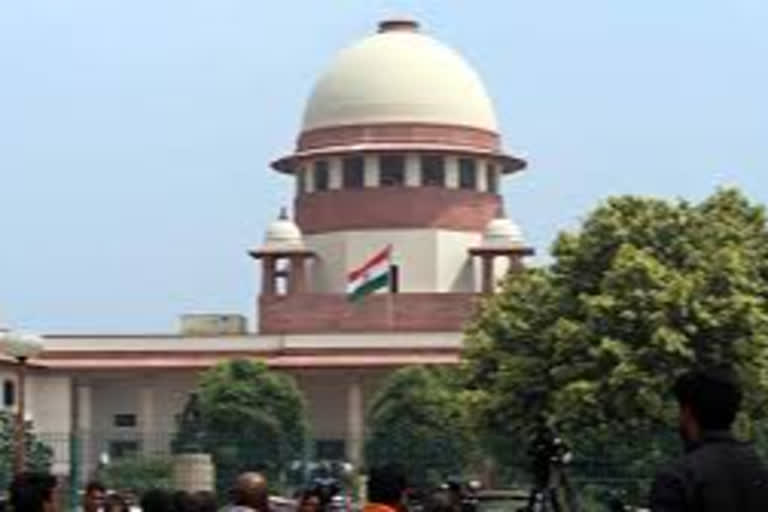New Delhi: The coronavirus-induced lockdown has hit various public institutions of the country and judiciary is no exception to it. As per the data released by the Supreme Court every month on the number of pending cases, as on 1st June 2020, there are 60,628 pending cases in the apex court.

The cases also include the ones which have filing defects and can not be entertained until the petitions are drafted properly.
In the initial phase of the lockdown, the court was taking up only extremely urgent matters but gradually the relaxations were made and now majorly all cases are being taken up, even though the situation is not entirely normal.
During the lockdown, when the court had declared that it would be hearing cases via online mediums, it was assumed that the number of pending cases in the court would rise drastically, but the present data on SC's website suggests that the numbers during pre and post lockdown phase are more or less similar.
While pending cases during the pre-lockdown months, i.e January and February, stood at 59,670 and 60,469 respectively, the corresponding figures for post lockdown months, i.e. March, April and May were 60,142, 60,083 and 60,628 respectively.
According to Advocate Ashwini Kumar Upadhya and Senior Advocate Ajit Sinha, both of whom practise at the Supreme Court, the number of pending cases didn't vary much between the two periods because fewer cases were filed during the lockdown
Sinha says that although the court has now been accepting almost all kinds of petitions, several Covid-19 restrictions and guidelines have left lawyers incapable of filing them currently.
Senior Advocate Ajit Sinha said, "There are different classes of lawyers. The regular lawyers who file cases are more accustomed to general filing business, i.e. by personally going to the counter and filing them, clients also coordinate accordingly. This section of lawyers is not filing cases at the moment."
On the other hand, the lawyers who have technological access are filing cases online but that " number is not the entire number", added Sinha. 60-70% of the advocates are awaiting the lifting of restrictions, said the former High Court judge.
"People are waiting for the COVID era to come to an end, there are many who are waiting for the clients to come, there are many who have material consideration that when they file it, they should get the money," added Sinha.
Talking about the other reasons, Upadhyay said that the High Courts have not been functioning in their full capacity, civil matters are not being taken up and mostly only bail matters are being decided.
Moreover, after the Supreme Court asked the states to release certain categories of prisoners from jails in view of Covid-19 outbreak, the High Courts have been granting bail and there is no judgement which reaches the top court to be challenged.
Also read: Ladakhis raising voice against Chinese intrusion; ignoring warning will cost India: Rahul
The matters which were decided by March have to be challenged in the court within 90 days of limitation period but they are not being filed as people think that they will get the liberty to file later on due to the present circumstances, added Upadhyay.
"Major cases used to come from Bombay, Chennai, Bengal, other major capitals which have been disrupted now due to Covid-19," said Upadhyay. Delhi has also become a hotspot with rising Covid-19 cases making people reluctant to travel to Delhi for filing cases.
As per Upadhyay, mostly PILs on coronavirus are being taken up by courts these days and other PILs are not listed. Upadhyay cited examples of the PILs filed by him on the uniform education system, criminalisation of politics and polygamy which haven't been listed.
Less number of cases or clients have also affected the advocates financially. There were letters and PILs in the Supreme Court asking for financial help during the lockdown period as they are getting less number of clients and are not being paid.
The independent lawyers earn on case to case basis and there is no fixed salary structure.
However, the Bar Council of India and the states have been helping advocates in distress.



